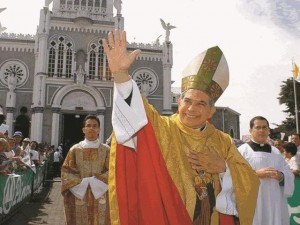Just when you thought perhaps Costa Rica was moving in the right direction introducing sex education in the schools to potentially prevent the 20% pregnancy rate of girls 19 and younger the Catholic Church steps in a says how it thinks it should be handled. The Catholic Church will be in competition to regulate programs of Sex Education and the affectivity of MEP.
 The announcement was made this morning by the Bishop of Cartago, Bishop Francisco Ulloa, during the act of dressing of the statue of Our Lady of the Angels, after the conclusion of the August 2.
The announcement was made this morning by the Bishop of Cartago, Bishop Francisco Ulloa, during the act of dressing of the statue of Our Lady of the Angels, after the conclusion of the August 2.
“The Episcopal Conference has prepared guidelines affective-sexual education for use in this educational task in catechesis, youth ministry and family ministry in the parishes,” the religious leader.
With this material, he said, intended to ensure that education in this area is “consistent with the dignity of human beings, and based on true love.”
Thus, Ulloa launched criticism of the curriculum developed by the Ministry of Public Education (MEP) to be used starting next school year for students in seventh, eighth and ninth.
“The family is undoubtedly the ideal place for such education and training. They develop personal relationships there and most significant emotional, calls to convey the meanings of a healthy sexuality, “he voiced. No offence Bishop, but the family has had its shot to educate its children about sex and is not doing a good job. With the fact that most Costa Ricans are very shy when it comes to talking about this topic and the fact that there is a 20% pregnancy rate of girls under the age of 20, it might be time to try something else.
“And so, although you can and should be helped from the different educational instances of church and state should never be superseded or interfered in the right and duty of the attending. This awareness becomes more urgent if one considers that the State wants to lead the field of education. And there is little risk of succumbing to the dictates of the ideology of “gender” (SIC). ”
Last year, in his homily, Bishop Ulloa called on women to dress “modestly” and “modesty”.
His call, however, aroused much controversy and even marches against the speech.

